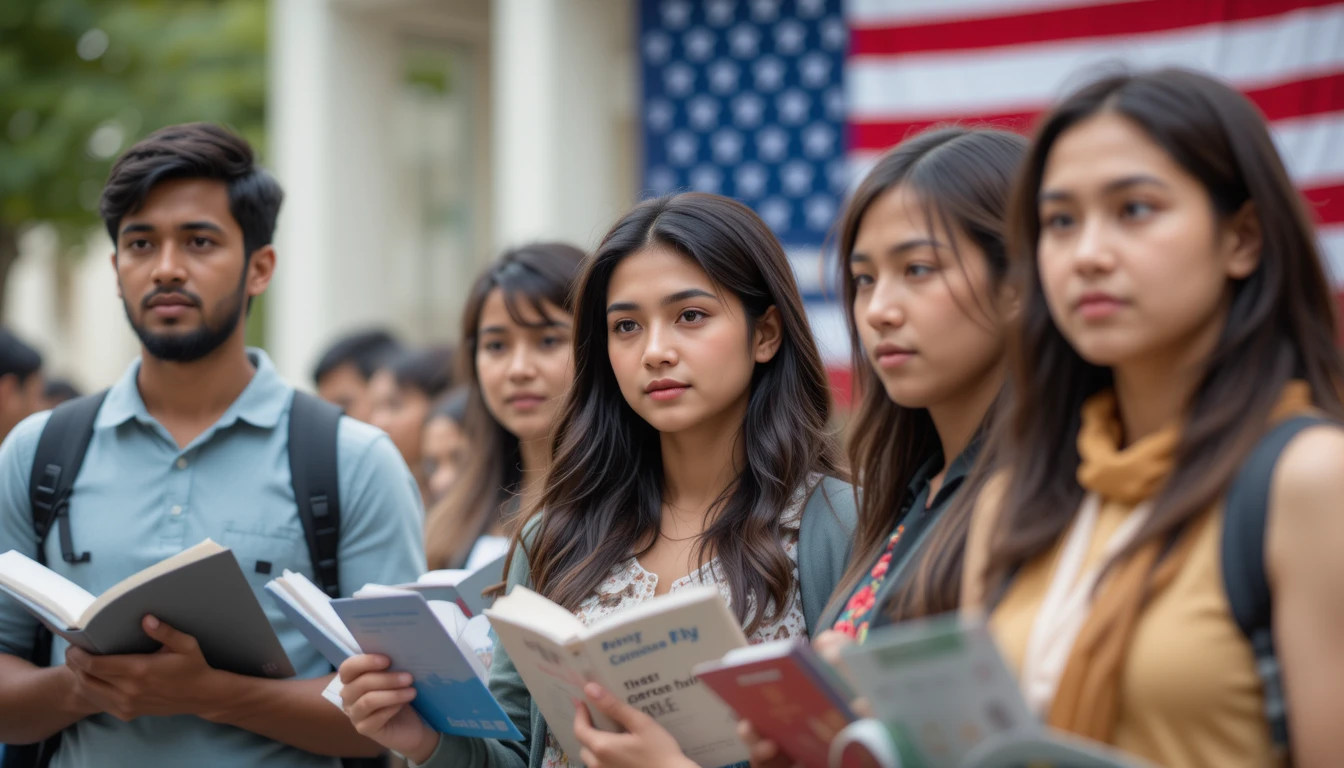Hundreds of students, including Pakistanis, face abrupt disruption to their education as US authorities revoke visas without prior notice.
Key Takeaways:
i) – Approximately 400 international students, including Pakistanis, have had their US visas unexpectedly canceled.
ii) – The visa revocations, impacting students at prestigious universities like Harvard and Stanford, occurred without legal proceedings or advance warning.
iii) – While authorities suggest a possible link to pro-Palestine protests, some non-participating students are also affected.
Islamabad, Pakistan – April 9, 2025 – A wave of uncertainty has swept through the international student community in the United States as authorities have abruptly canceled the visas of nearly 400 individuals, including a number of Pakistani students. The unexpected move, which occurred without any prior notification or legal due process, has left affected students at prominent universities like Harvard, Stanford, UCLA, and the University of Michigan in a state of shock and confusion.

According to reports in the American media, the sudden visa revocations have cast a shadow over the academic pursuits of these international scholars. While the exact reasons behind this widespread action remain officially undisclosed, speculation suggests a potential connection to recent pro-Palestine demonstrations on university campuses. Some reports indicate that the authorities may be targeting students who participated in these protests.
However, adding to the distress and raising concerns about the fairness of the process, several students who claim they did not participate in any such demonstrations have also reportedly had their visas revoked. This has fueled anxieties among the broader international student body in the US, including those from Pakistan, who now fear the arbitrary nature of these actions and the potential disruption to their educational journeys.
This development is likely to cause considerable concern in Pakistan, particularly among families who have invested heavily in their children’s education in the United States.
The lack of transparency and the absence of any opportunity for the affected students to address the concerns or appeal the decision have drawn criticism from student advocacy groups and legal experts. The suddenness of the cancellations has created significant logistical and emotional challenges for the students, forcing them to confront immediate decisions about their accommodation, finances, and future academic prospects.
This development is likely to cause considerable concern in Pakistan, particularly among families who have invested heavily in their children’s education in the United States. The Pakistani government is expected to take notice of this situation and may engage with US authorities to seek clarity and ensure the fair treatment of its citizens studying abroad. The incident underscores the vulnerabilities faced by international students and the potential impact of geopolitical events on their academic careers.




